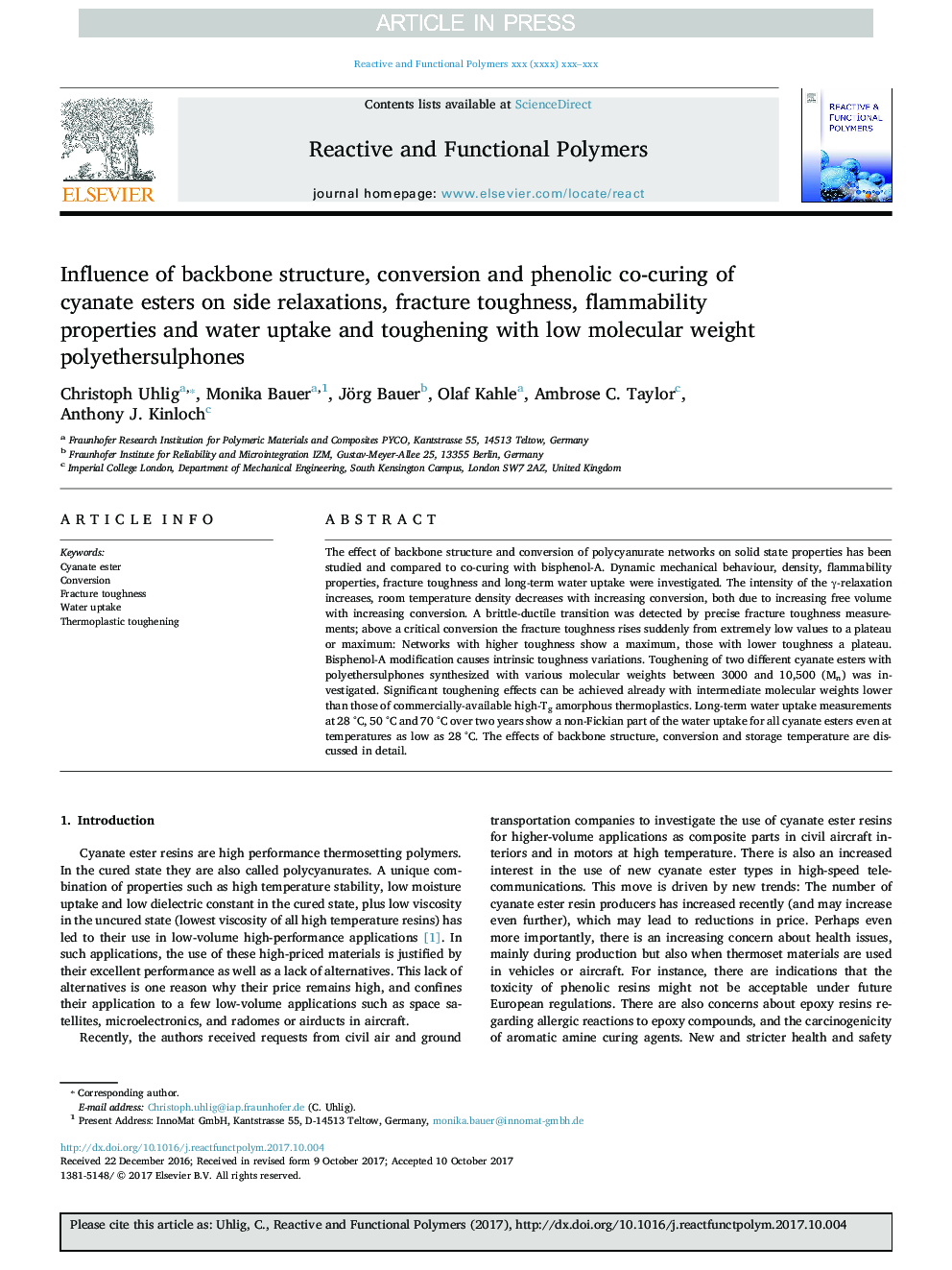| Article ID | Journal | Published Year | Pages | File Type |
|---|---|---|---|---|
| 7826109 | Reactive and Functional Polymers | 2018 | 21 Pages |
Abstract
The effect of backbone structure and conversion of polycyanurate networks on solid state properties has been studied and compared to co-curing with bisphenol-A. Dynamic mechanical behaviour, density, flammability properties, fracture toughness and long-term water uptake were investigated. The intensity of the γ-relaxation increases, room temperature density decreases with increasing conversion, both due to increasing free volume with increasing conversion. A brittle-ductile transition was detected by precise fracture toughness measurements; above a critical conversion the fracture toughness rises suddenly from extremely low values to a plateau or maximum: Networks with higher toughness show a maximum, those with lower toughness a plateau. Bisphenol-A modification causes intrinsic toughness variations. Toughening of two different cyanate esters with polyethersulphones synthesized with various molecular weights between 3000 and 10,500 (Mn) was investigated. Significant toughening effects can be achieved already with intermediate molecular weights lower than those of commercially-available high-Tg amorphous thermoplastics. Long-term water uptake measurements at 28 °C, 50 °C and 70 °C over two years show a non-Fickian part of the water uptake for all cyanate esters even at temperatures as low as 28 °C. The effects of backbone structure, conversion and storage temperature are discussed in detail.
Related Topics
Physical Sciences and Engineering
Chemistry
Organic Chemistry
Authors
Christoph Uhlig, Monika Bauer, Jörg Bauer, Olaf Kahle, Ambrose C. Taylor, Anthony J. Kinloch,
